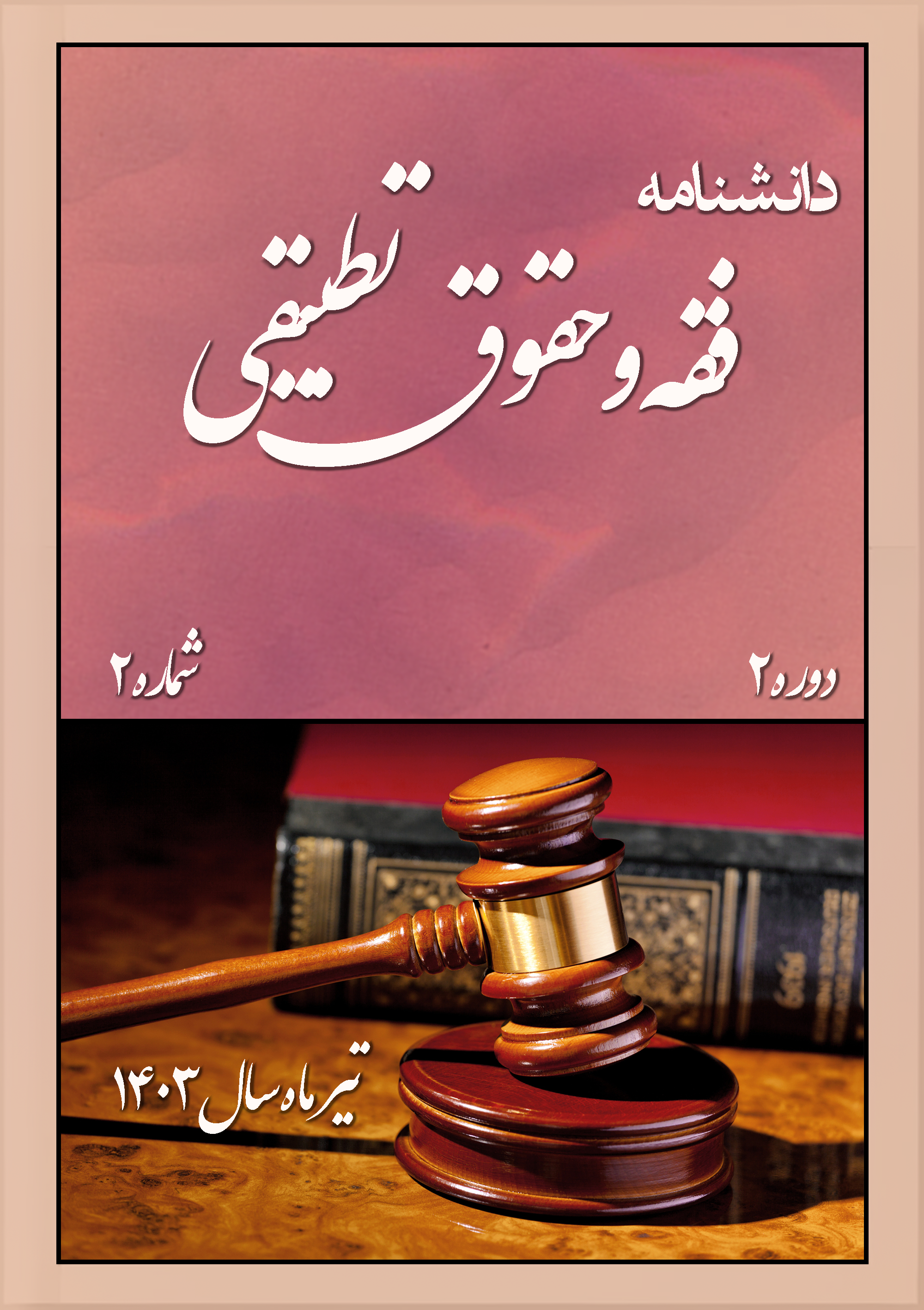Principles Governing the Fair Trial Process from the Perspective of Criminal Procedure
Keywords:
Fair trial, Human dignity, Rule of law, Defendants’ rights, Iranian criminal justice systemAbstract
Fair trial, as a fundamental human right, safeguards individual rights and freedoms while ensuring the legitimacy of the criminal justice system. It encompasses a set of procedural and substantive guarantees including the presumption of innocence, equality of arms, judicial impartiality, public hearings, access to counsel, and the right to be informed of charges, all grounded in human dignity and the rule of law. Using a descriptive-analytical approach and based on the review of statutory provisions, Islamic jurisprudential sources, and legal scholarship, this study explored the principles of fair trial within Iran’s criminal procedure system, examined their status, and analyzed existing implementation challenges. The findings revealed that although the Constitution of the Islamic Republic of Iran and the Criminal Procedure Code of Iran formally recognize many fair trial components, their practical enforcement is hindered by structural deficiencies, insufficient professional training for judicial police and judges, social and political pressures on the judicial process, and entrenched traditional crime-control attitudes. Moreover, Iran’s legal aid mechanisms remain inadequate, and oversight over judicial authorities is weak. It is therefore recommended to reform procedural laws, institutionalize continuous human rights training for judicial authorities and law enforcement, strengthen independent oversight mechanisms, and expand legal aid services to ensure effective defense for defendants. Implementing these reforms would enhance the legitimacy and efficiency of the criminal justice system and strengthen public trust in the judiciary.
Downloads
References
Abazari Foomeshi, M. (2012). Terminology of criminal law. Shaheed Noorollahi Publishing.
Amid, H. (1967). Amid Dictionary. Javadian Elmi Publishing.
Amid Zanjani, A. (2012). Jurisprudential rules (Vol. Vol. 2). SAMT Publishing.
Arjomandi Danesh, A. A. (2010). Terminology of Islamic criminal law. Behnay Publishing.
Ashouri, M. (2007). Criminal procedure (Vol. Vol. 2). SAMT Publishing.
Azimzadeh, S. (2013). General criminal law. Dorandishan Publishing.
Bahmani Qajar, M. A. (2007). Fair trial based on the Law on Respect for Legitimate Freedoms and Protection of Citizens' Rights. Political-Economic Information Journal, 21(239-240), Aug.-Sep. 2007.
Dehkhoda, A. (1986). Dehkhoda Dictionary (Vol. Vol. 11). Dehkhoda Dictionary Institute.
Fazaeli, M. (2015). Fair trial in international criminal proceedings. Danesh Publishing.
Ghorbani, A. (2012). Presumption of innocence in Islamic jurisprudence and the European concept of presumed innocence. Islamic Jurisprudence and Law Studies Quarterly, 8(26), Winter 2012.
Gorji, A. A. (2008). Rule of law and limitations of the right to litigation in the Court of Administrative Justice. Journal of Constitutional Law, 7(9).
Hashemi, M. (2009). Constitutional law of the Islamic Republic of Iran (Vol. Vol. 1). Mizan Publishing.
Hashemi, M. (2023). Human rights and fundamental freedoms. Mizan Publishing.
Hashemi, S. H. (2013). The right to a fair trial (Vol. Vol. 1). Majd Publishing.
Javanmard, B. (2014). The process of criminal procedure (Vol. Vol. 1). Javedaneh Publishing.
Jazairi, A. (1998). The school of Ahl al-Bayt (peace be upon them) (Vol. Vol. 5). Dar al-Thaqalayn.
Khazaei, M. (1994). Presumption of innocence and the burden of proof in criminal cases. Legal Research Journal, 1(13-14), Dec. 1994.
Khoei, S. A. (1987). Mabani Takmilat al-Minhaj [Foundations of supplementing al-Minhaj]. Matba'at al-Adab.
Mohahedi, J. (2014). Reversal of the burden of proof in criminal procedure. Majd Publishing.
Najafi, M. H. (2013). Jawahir al-kalam fi sharh shara'i al-Islam [Jewels of speech in explaining the Islamic laws] (Vol. Vol. 41). Islamiyyah Publishing.
Naji Zavareh, M. (2015). Impartial adjudication in criminal matters. Danesh Publishing.
Omidi, J. (2008). Criminal procedure as a human right. Journal of the Faculty of Law and Political Science, 44, 816.
Qara'ati, A. (2006). Quran dictionary (Vol. Vol. 2). Dar al-Kitab al-Islami.
Rahiminezhad, E. (2008). Human dignity in criminal law. Mizan Publishing.
Rahmdel, M. (2006). Criminal proceeds and reversal of the burden of proof. Journal of the Faculty of Law and Political Science, 72.
Rostami, V., Aghaei, M., & Lotfi, H. (2009). Fair trial in Iranian administrative courts (Vol. Vol. 1). Tehran Publishing.
Sarmast Benab, B. (2008). The principle of presumption of innocence in criminal law. Dadgostar Publishing.
Tabatabaei Mo'tameni, M. (2007). Constitutional law. Mizan Publishing.
Tadayyon, A., & Bagherinejad, Z. (2011). Guaranteeing a fair trial under the principle of legality in obtaining criminal evidence. Legal Research Journal, 14(53), May 2011.
The Oxford Encyclopedic. (1998). English Dictionary. New York.
Varvaei, A., & Emami, S. (2015). Criminal procedure law in current legal order (Vol. Vol. 1).
Wasiti Zabidi, M. a.-D. (1993). Taj al-'Arus min Jawahir al-Qamus [The bride's crown from the jewels of the dictionary] (Vol. Vol. 17). Dar al-Fikr.
Downloads
Published
Submitted
Revised
Accepted
Issue
Section
License
Copyright (c) 1403 مهدی حریری (نویسنده)

This work is licensed under a Creative Commons Attribution-NonCommercial 4.0 International License.










